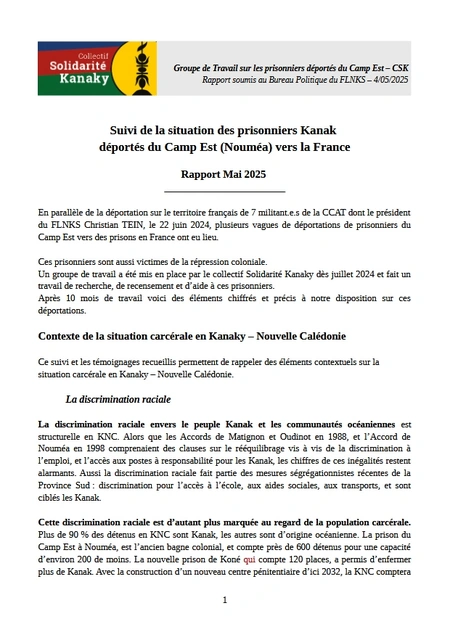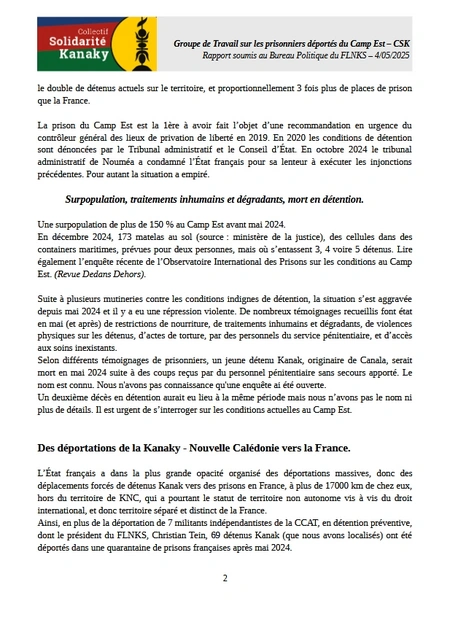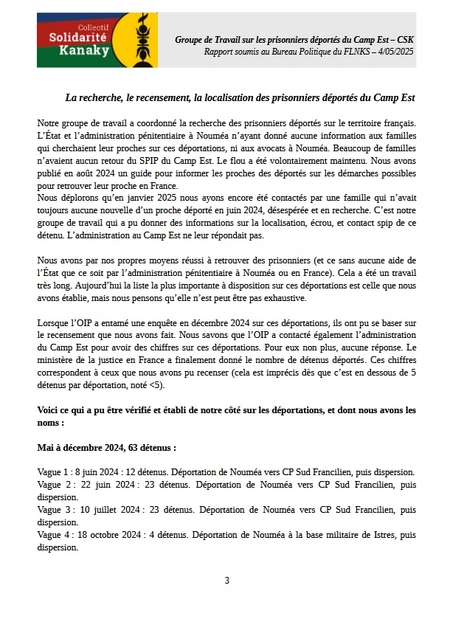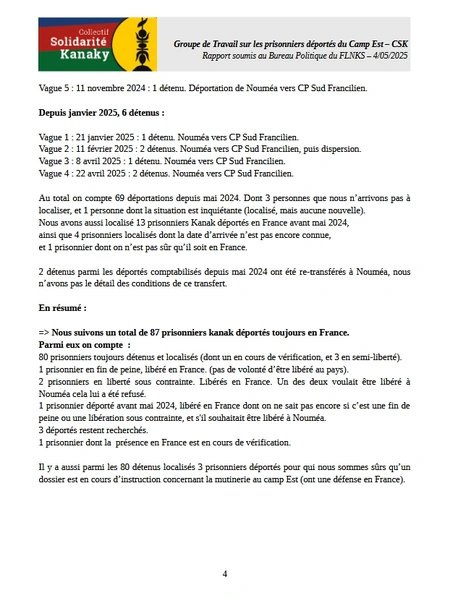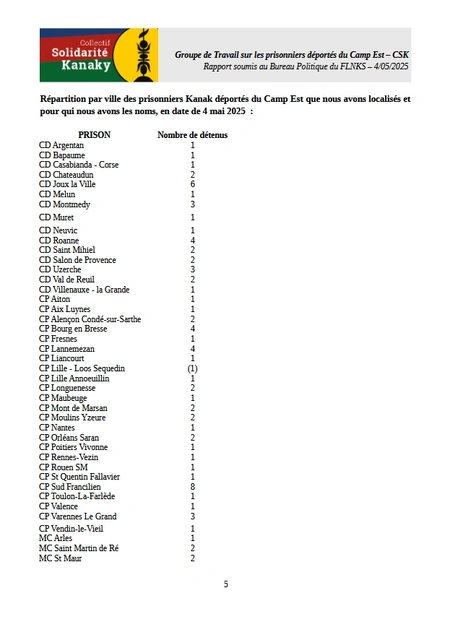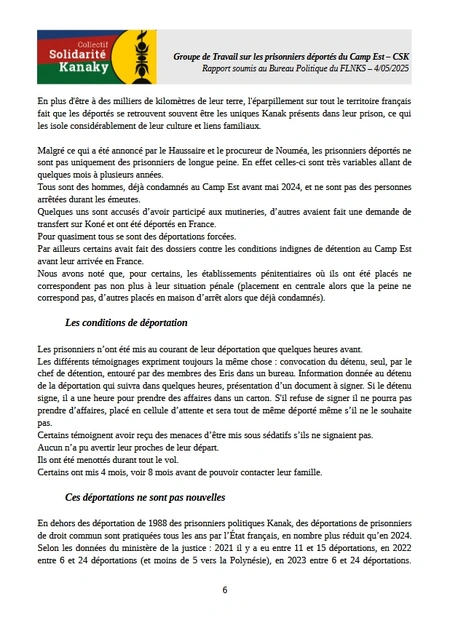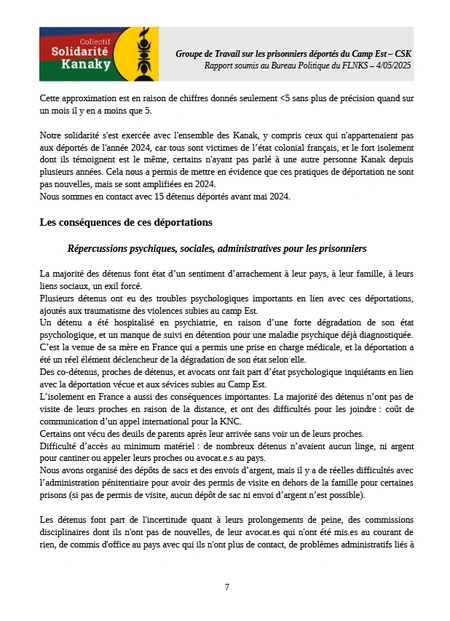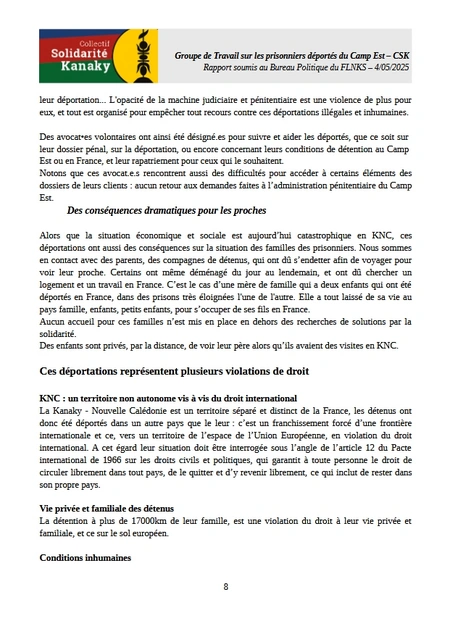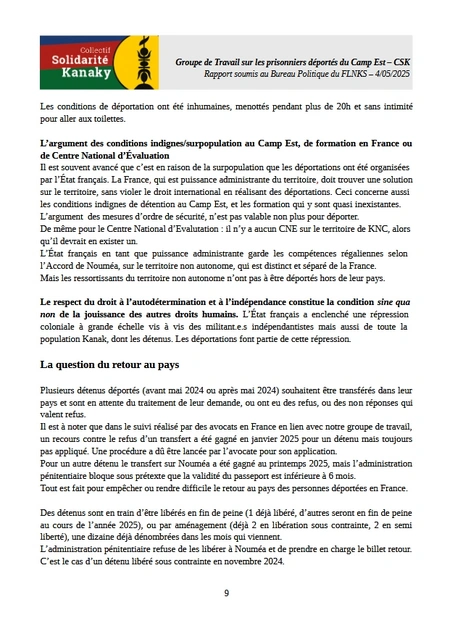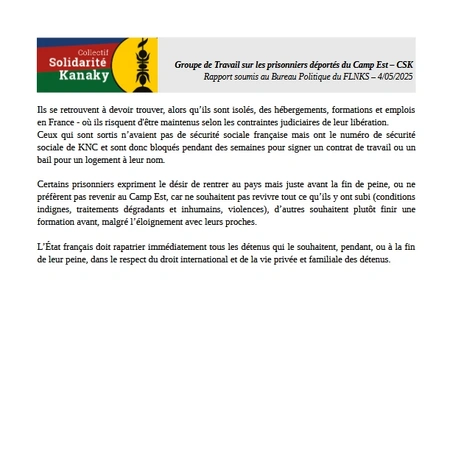France's violence against the Kanaks – Prisoners forcibly deported, international law violated
- 21 May, 2025
- 16:46
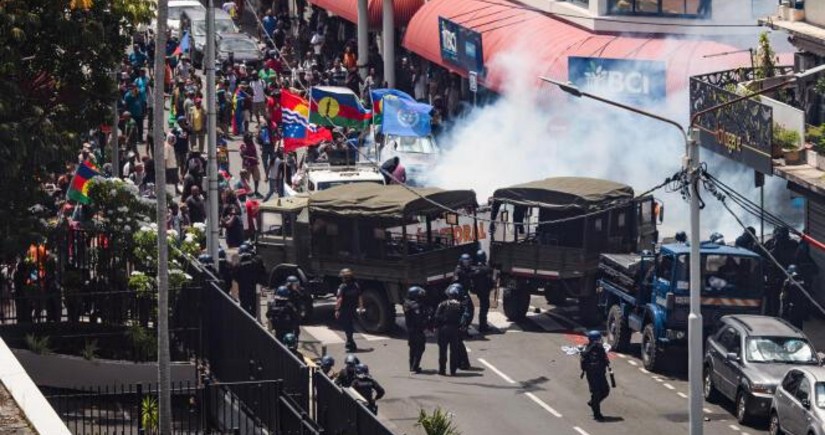
France continues its repressive actions against the independence movement in New Caledonia. In May of this year, the “Collectif Solidarité Kanaky” (Solidarity with Kanaky Collective) published a report detailing the situation of Kanak political and other prisoners who have been forcibly deported to France. It covers the period from June of last year to May of this year, documenting the registration, monitoring, and support efforts provided to the prisoners and their families.
The document highlights France’s repressive approach toward human rights and freedoms. As is known, on June 22, 2024, seven members of the Coordination Cell for Field Activities (CCAT), including Christian Tein, the leader of the Kanak and Socialist National Liberation Front (FLNKS), were deported to France. Prisoners held in the “Camp Est” prison in Kanaky have also been deported to France.
The document further notes that systemic policies of racism and social inequality are being implemented against the indigenous Kanak population in all spheres. For instance, institutionalized racism in Kanaky is evident not only in schools, workplaces (including during job appointments), and access to social benefits and transport, but is also widely practiced in the prison system. Around 90% of inmates in Kanaky prisons are indigenous Kanaks, while the remaining 10% are individuals from other Pacific islands.
According to the report, conditions in the “Camp Est” facility—which initially operated as a penal colony in the early years of colonization and later became a prison—are described as intolerable. In May 2024, the number of inmates exceeded the prison's capacity by 150%. Cells designed for two people often house five, and nearly 180 individuals are held in rooms with no basic living conditions.
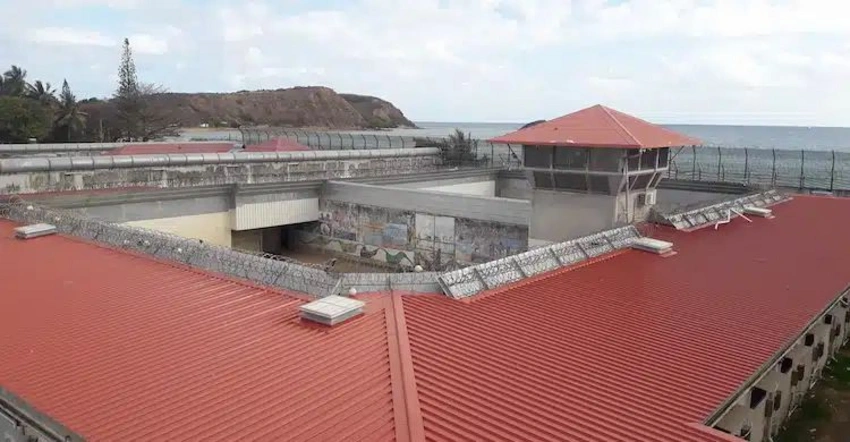
Following the riots that took place in Kanaky in May of last year, the situation has worsened significantly, with increased repression against prisoners. Restrictions on food provision have been introduced, and reports indicate that prison staff are engaging in acts of physical violence and torture. One has died as a result of these violent actions.
As far back as 2019, the Chief Inspector of Places of Deprivation of Liberty in France recommended urgent renovation of the "Camp Est" facility. In 2020, both the French Administrative Court and the Council of State condemned the deteriorating detention conditions at "Camp Est". By October 2024, the Nouméa Administrative Court ruled against the French state for failing to carry out the necessary renovation work.
In May 2024, after the Kanaky unrest, the French government deported 69 Kanak prisoners and 7 key figures involved in the independence movement to France in a non-transparent manner. During this process, no information was provided to the families of the prisoners or to their legal representatives. For a long time, French authorities even refused to release a list of the deported individuals.
The deportations were accompanied by both psychological and physical abuse. Prisoners who refused to sign the so-called “voluntary consent” form were subjected to threats and forcibly administered strong sedatives. However, even refusal to sign the form did not prevent deportation—prisoners were transferred to France. During the over 20-hour-long air transfer, detainees were denied access to basic sanitary facilities.
The deportation of Kanak prisoners from Kanaky to France is not a new practice—it is a recurring policy implemented annually. These deportations cause severe psychological, physical, social, administrative, and financial difficulties for both the prisoners and their families. Many detainees suffer from mental health issues due to prolonged periods of being cut off from their loved ones. These problems are compounded by the trauma experienced at "Camp Est."
In addition to psychological harm, many prisoners face serious physical health issues due to the lack of basic items like mattresses or money to purchase food.
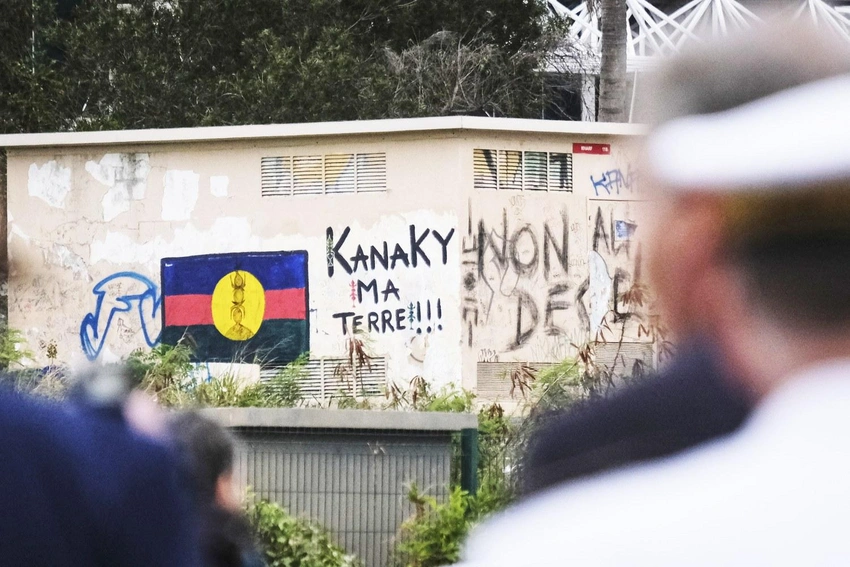
The report also highlights that by forcibly deporting Kanak prisoners, France is in violation of international law. According to international legal standards, Kanaky is not considered part of France’s national territory but is listed among the non-self-governing territories that must undergo decolonization. Therefore, when France deports Kanaks, it is effectively sending them from their own country—Kanaky—to a foreign state, i.e., France.
These developments clearly demonstrate how sensitively and fearfully France is reacting to the events unfolding in New Caledonia. The underlying issue is that France is determined to maintain its presence in its former colonies—at any cost.
In May of last year, protests against French colonial rule in New Caledonia escalated into deadly violence, with numerous killings reported and more than 200 people detained. The damage from the unrest in France’s Pacific overseas territory was initially estimated at €150 million. Mimsi Dali, head of the regional branch of France’s Entrepreneurs Movement (MEDEF), warned that the unrest could have catastrophic consequences for the regional economy.
The situation deteriorated to the point that French authorities felt compelled to deploy military forces to New Caledonia under the pretext of securing seaports and airports. Paris's level of fear and alarm was so great that it even moved to suspend access to the social media platform TikTok in New Caledonia—an action that only fueled further public outrage.
